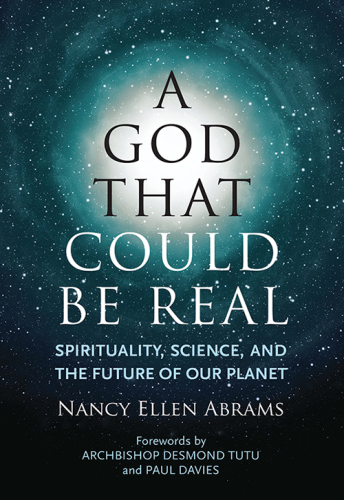
A God That Could Be Real
Spirituality, Science, and the Future of Our Planet
فرمت کتاب
ebook
تاریخ انتشار
2015
نویسنده
Archbishop Desmond Tutuناشر
Beacon Pressشابک
9780807073407
کتاب های مرتبط
- اطلاعات
- نقد و بررسی
- دیدگاه کاربران
نقد و بررسی

February 9, 2015
Abrams, a lawyer and coauthor of books on cosmology (The New Universe and the Human Future), had long-standing disdain for organized religion and oversimplified approaches to faith and God. But a personal crisis with an eating disorder prompted her to deeply rethink her views about God and religion. She came to understand God as something consistent with what is real in the universe. “God persists and always will because it’s a fundamental characteristic of the connection between ourselves and the universe,” Abrams writes. She argues that God emerges in the world through the human mind and that humans have the responsibility to create a better world for themselves and future generations. She urges readers to pay close attention to climate change and the destruction of the planet. Prayers are answered, she maintains, and yet no one is there to hear them. Much is possible for the planet and its people, she concludes, and she “want(s) to conserve this divine explosion of possibilities.” This book will appeal to scientifically minded readers and those intrigued by process theology. Agent: Douglas Abrams, Idea Architects.

March 1, 2015
Lawyer and philosopher Abrams (coauthor, The View from the Center of the Universe) was faced with a dilemma: intellectually committed to atheism, she began to embrace the idea of a higher power while part of a recovery community. This concise book intelligently describes her ideas about a growing, "emergent" God, a God conformable both to the experience of the religious and the standards of the atheistic and nonreligious. She emphasizes our care and concern for the planet as a crucial component both of this emergent God and our sense of immortality; for the author, the survival of the Earth and the success of future generations are essential to "faith." Abrams's sense of a post-literal God is by no means unique, as she seems to suppose, but her approach is direct, well informed, and effectively grounded both in her personal experience and her knowledge of scientific principles. VERDICT A fine addition to the growing library of alternative approaches to literalism in belief, this book is suitable for academic libraries, liberal churches, and individual seekers.
Copyright 2015 Library Journal, LLC Used with permission.

























دیدگاه کاربران